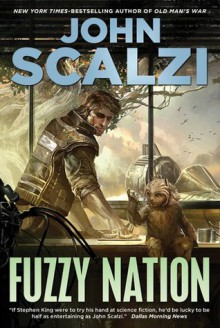Fuzzy Logic Systems Tutorial-What is Fuzzy Logic in AI, Architecture of Fuzzy Logic Systems, Applications of Fuzzy Logic in AI, Pros and cons of Fuzzy Logic

Fuzzy Logic Systems Tutorial-What is Fuzzy Logic in AI, Architecture of Fuzzy Logic Systems, Applications of Fuzzy Logic in AI, Pros and cons of Fuzzy Logic
Fuzzy logic was first presented by Lotfi A. Zadeh as normal augmentation in the old style thought of set hypothesis. Not at all like the old style hypothesis where components have a place or not with the given set, this hypothesis permits the level of belongingness of a specific component can be ascribed in a steady manner. Fuzzy logic is the technique of soft computing as well as various stunning applications of soft computing.

As indicated by Al-Odienat et al, as a rule, the fuzzy logic controller is less expensive to create, spread a wide scope of working conditions and they are promptly adjusted as far as characteristic language when contrasted with regular controllers. Self-sorting out Fuzzy logic controllers can naturally refine the underlying fluffy guidelines. The Fuzzy controller configuration ought to enable the adaptability to change the control, since the included frameworks, by and by, are commonly mind-boggling with time shifting nonlinearities with not well-characterized elements. Along these lines, regular control techniques dependent on the hypothesis of direct frameworks more often than not linearize nonlinear frameworks before being utilized. This isn't a certification of good execution practically speaking. Additionally, a large portion of the controllers is created dependent on exact numerical models of the framework. Actually, a few frameworks are hard to be precisely demonstrated with thorough scientific models and this has inspired the enthusiasm for the utilization of Fuzzy Controllers. Another favorable position is that the Fuzzy controller is movable and effectively comprehended by human specialists as the learning of the control put on the standard base is semantic.
Advantage of Fuzzy logic controller over traditional one:
To put it plainly, we can feature the upsides of utilizing Fuzzy logic controllers as:
1. They are thoughtfully straightforward: the ideas driving are basic and essential;
They are adaptable: they permit adding usefulness to existing Fuzzy frameworks simply including new information the previous standard base;
2. They are tolerant of uncertain information: accuracy mistakes or arbitrariness of estimations has little effect on framework execution;
3. They can demonstrate nonlinear frameworks with discretionary intricacy: this should be possible by frameworks, for example, "Versatile Neuro-Fuzzy Inference Systems";
4. They can be developed dependent on the information of specialists and framework's conduct;
5. They can be effectively blended with the customary control frameworks, offering expanded execution;
6. They depend on normal human language, which encourages the expansion, change of new standards, special cases and new practices to previous Fuzzy frameworks.
7. The control of frameworks utilizing conventional approaches faces issues when managing non-linearity, poor scientific meaning of the issue, changes and vulnerability in the framework parameters too. This can lessen execution or even agitate the control framework structured with customary techniques. In this sense, control frameworks that are hearty enough to adjust and acclimate to these progressions are attractive.
8. In a criticism control framework, the blunder signal e(t) =r - y(t) is the contribution to the Fuzzy logic controller which modifies the control signal u(t) in like manner with the goal that the indication of the mistake keeps an eye on z
Fuzzy logic has two unique implications. In a thin sense, fluffy
rationale is a coherent framework, which is an expansion of multi
esteemed rationale. In any case, in a more extensive sense fluffy
rationale (FL) is practically synonymous with the hypothesis of fluffy
sets, a hypothesis which identifies with classes of items with unsharp
limits in which participation involves degree. In this point of view,
fluffy rationale in its tight sense is a part of FL. Indeed, even in its
increasingly thin definition, fluffy rationale contrasts both in idea and
substance from customary multi esteemed coherent frameworks.
There are some fuzzy logic applications which are used in different area
such as:
Control of rocket height
Satellite stature control
Insightful parkway framework
Traffic control
Basic leadership help framework
Moistness in a perfect room
Cooling framework
Clothes washer time
Microwaves
vacuum more clean
Bank exchange control
Store the board
Securities exchange forecast
Fluffy rationale based
Penmanship acknowledgment
Direction investigation
Fluffy Image Search
Train calendar control
Speed of railroads
Braking and ceasing
Controlling Structural Design

I have discovered that I like John Scalzi's writing, so when I saw that he had done what he calls a 'reboot' of one of my favourite SF stories - Little Fuzzy by H. Beam Piper - I thought, well, okay, I can read this. Also, a couple of my friends said they enjoyed it.
So, did I?
Yes, for the most part. Like I said, I enjoy Scalzi's writing. Which is a good thing, because all the lawyer talk, the scientific talk etcetera, could have been very dry and unappealing in another author's hands.
There are a lot of differences from the original Piper novels. A lot of characters missing or retooled into other, maybe composited, characters. The plot, while remaining true at its heart, is focused much more on the legal aspects of the story as well as the um... not-niceness of Jack Holloway. All that is fine, but what I missed was the interaction with the Fuzzies. How Jack grew to accept and care for them as people, not pets. How the Fuzzies showed their sapience. I remember a scene in the original about a funeral that's stuck with me all these years. I missed those scenes in this book.
So, yeah, I enjoyed it and would probably recommend it to others, but I wasn't as satisfied as I'd hoped I'd be. I would totally direct people to read the original Fuzzy books by H. Beam Piper, though. :)
![Fuzzy Nation [Unabridged] - Wil Wheaton,John Scalzi Fuzzy Nation [Unabridged] - Wil Wheaton,John Scalzi](http://booklikes.com/photo/max/220/330/upload/books/7/37/3a4bcf81394398152afa4a0d1c7f7935.jpg)
I’ve never read the original story, and I am disappointed because I was under the impression that the two books were packaged together, based on the foreword and the reviews placed highest on the Audible website, but apparently they’ve now split the two books and must be purchased separately.
Still, I enjoyed the Scalzi reboot very much on its own, without reference to the 1963 version. This is what those goofy ewoks should have been. Figuring out what’s going on with the main character, Jack Holloway, and his motivations kept me engaged with the plot, which is a little heavier on the legal intrigue than I usually care for, and I sincerely appreciate that Scalzi includes a strong, smart, independent female character who,
in spite of having had a past romantic relationship with the MC, does not serve as a love-interest or in any way feature as a sexual object for him or the reader.
Audiobook, via Audible. Wil Wheaton provides a fantastic performance for the readings. Although he doesn’t attempt a lot of unique “voices” for the different characters, he reads with spirit, humor, and excellent pacing, and I’m never in any doubt as to which character is speaking.
I read this book for The 16 Tasks of the Festive Season: Square 12: December 23rd: Book themes for Saturnalia: The god Saturn has a planet named after him; read any work of science fiction that takes place in space. –OR– Read a book celebrating free speech. –OR– A book revolving around a very large party, or ball, or festival, –OR– a book with a mask or masks on the cover. –OR– a story where roles are reversed. I do have a ruling from the game overlords that an extraterrestrial setting counts as “in space”.
ALSO: This book would have fit a couple of other hard-to-capture squares:

Previous Updates:
11/10/17 4%
11/10/17 61%